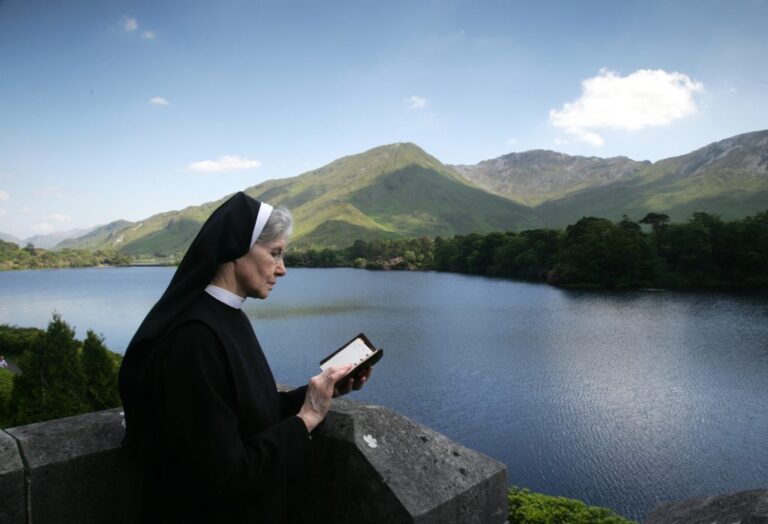Laudato Si gives us much to celebrate, it is hugely inspiring and challenging. Borrowed from his namesake Francis of Assisi’s famous poem to brother son and sister Moon, Pope Francis uses the title Laudato Si which translates as ‘Praise be to you’ and the encyclical carries the message and spirit which echo much of the soul of St Francis.
Pope Francis reminds us that our common home, the earth, is like a sister with whom we share our life or a beautiful mother who opens her arms to embrace us. But this sister/mother now cries out to us because of the harm we have inflicted on her by our irresponsible use and abuse of the goods she endows us with.
We have come to see ourselves as lords and masters entitled to plunder her as we wish. We have forgotten that we ourselves are part of the earth. Our bodies are made up of her elements, we breath her air, we receive life and refreshment from her waters. In St. Paul to the Colossians 1:16 we read “all things have been created through, in, and for him” in other words creation is bound up with the mystery of Christ from the beginning.
Invitation
Pope Francis invites us to be struck by the ‘awe’ and ‘wonder’ of nature. The words ‘awe’ and ‘wonder’ are used 14 times in the encyclical echoing the teaching of Rabbi Heschel, that without awe the universe becomes a marketplace.
The Pope teaches that if we approach our environment without this openness to ‘awe’ and ‘wonder’ our attitude will be that of masters, consumers, ruthless exploiters, unable to see limits on our immediate needs. He calls on us to express our gratitude for the gifts of creation and for the awareness that we are not disconnected from the rest of creatures but joined in a splendid universal communion.
This awareness of our interconnectivity with all of creation is spoken over and over again in this encyclical. We live in an interdependent world where God wills the interdependence of creatures and since no creature is self-sufficient, creatures exist in the service of each other. Interdependence characterises human society as well as the entire species.
Awareness
A cosmic awareness and a sense of the cosmic universal Christ is referenced frequently in the document as well. We are told the universe unfolds in God who fills it completely, therefore there is a mystical meaning to be found in a leaf, in a mountain trail, in a dew drop and in a poor person’s face. It is not enough to discover the actions of God in the soul but also to discover God in all things.
In his prayer that concludes the encyclical the Pope prays to God saying ‘you are present in the whole universe and in the smallest of your creatures’. He quotes Jesus’ loving relationship with all of creation. He reminds us of how Jesus invited his disciples to recognise the loving relationship God has with all creatures, with all the creatures of the world.
Pope Francis offers a prayer at the conclusion of his encyclical “for all who believe” in a God who is a creator God. “You are present in the whole universe and in the smallest of your creatures.” And he asks God to “pour out upon us the power of your love, that we may protect life and beauty”.
He asks that “we may protect the world and not prey on it, that we may sow beauty, not pollution and destruction.” And in a final prayer asks God to “Teach us to contemplate you in the beauty of the universe, for all things speak of you”.
He criticises unhealthy dualism and reminds us that all beings and things are sacred.
Harmony
He says Jesus himself “is far removed from philosophies which despised the body, matter and the things of this world”. He says that Jesus lived “in full harmony with creation” and “his appearance was not that of an ascetic set apart from the world, or of an enemy to the pleasant things of life”.
He quotes the scriptural passages that are famous as texts of the cosmic Christ when he cites Colossians 1: “All things have been created through him and for him” and the prologue to the Gospel of John (1:1-18) that “reveals Christ’s creative work as the Divine Word (Logos)”.
He says “the mystery of Christ is at work in a hidden manner in the natural world as a whole, without hereby impinging on its autonomy”. God is present in all beings, “the very flowers of the field and the birds which his human eyes contemplated and admired when he was on earth are now imbued with his radiant presence”.
Pope Francis believes God can bring good out of the evil we have done. He believes we can change our ways. It is a call to action for each and every one of us. We have the intelligence and creativity to change our ways and change our world. We can and we must act now.



